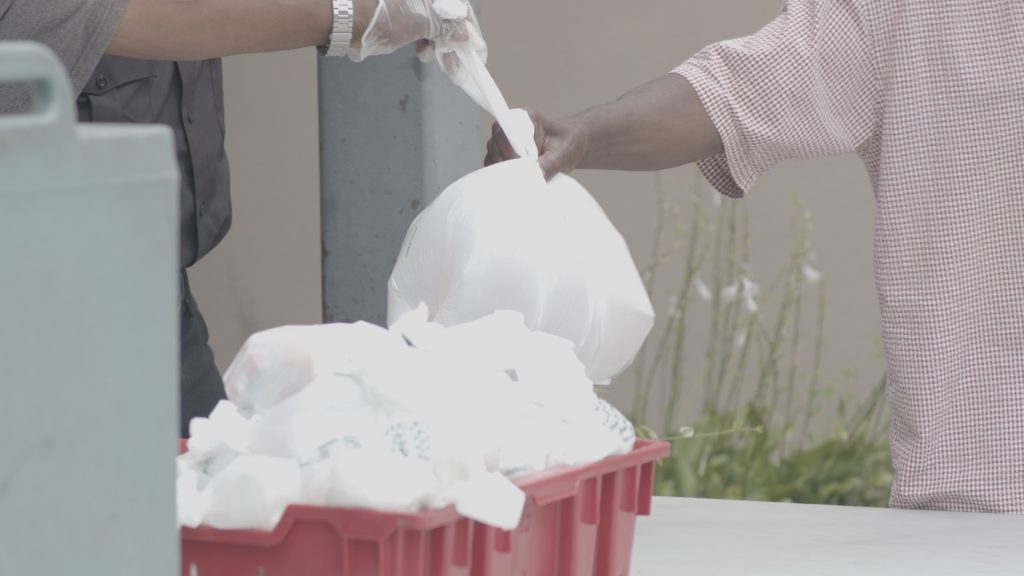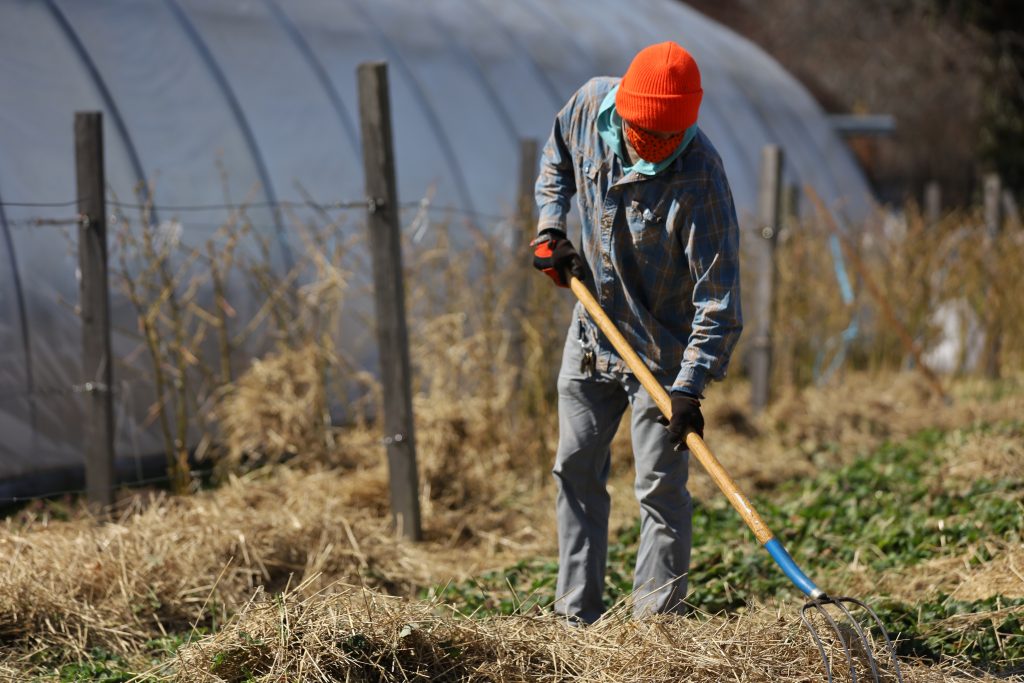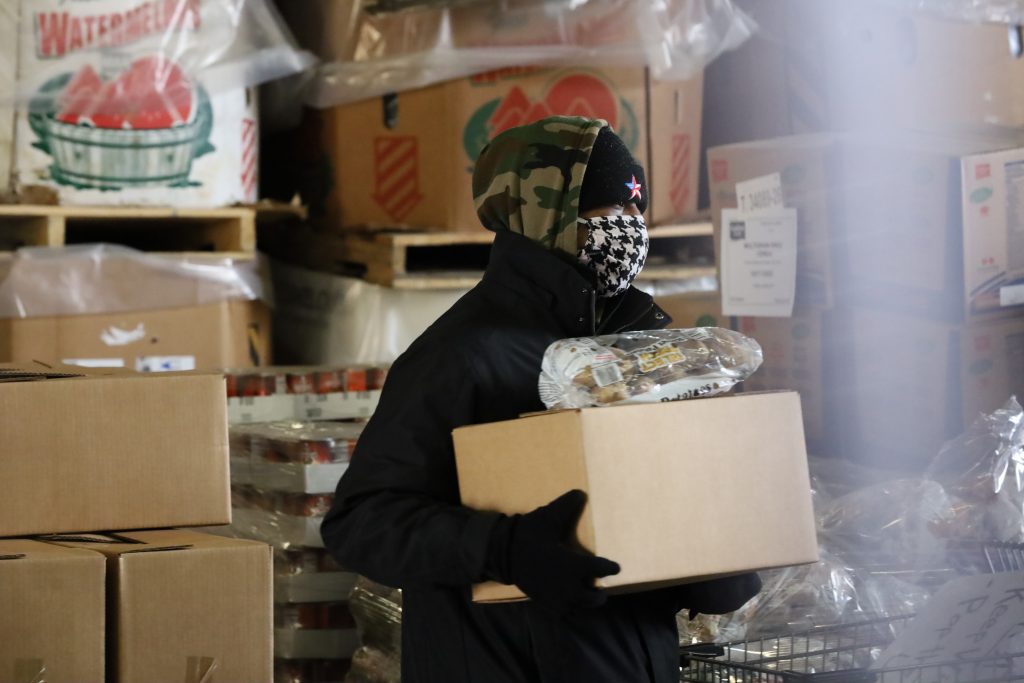A man who was injured and clearly mentally ill came to the Capuchin Soup Kitchen seeking help. Any other time, Brother Bob Malloy, who is director of pastoral care, would have personally driven the man to a hospital, but that day he couldn’t.
The COVID-19 pandemic tied his hands, and he couldn’t take the risk of infecting the others who came to his order daily.

Like that gentleman, many Detroiters have faced trials and uncertainties brought about by the pandemic and prayed for help. For some seeking assistance with food, shelter, clothing and addiction, those trials and uncertainties were compounded by COVID-19.
Many of them found an answer to their prayers at the Capuchin Soup Kitchen. Founded in 1929, the organization is run by a Franciscan order. Inspired by the life and spirit of St. Francis of Assisi, the monks follow a vow to help people with basic needs and battle the root causes of social injustice.
When the pandemic hit it threw doubt over a bit more than simply getting haircuts. The brothers had to pivot and make quick transitions, otherwise many people might have nowhere to go. Ever resourceful and committed to their mission, they rapidly made changes to continue serving those in need.
The most common need many of their guests face is food insecurity. To help fill that need there are several services – the soup kitchen and the Capuchin Service Center, which provides food and clothing. Changes were made in both.
Only a handful of people are allowed in the soup kitchen at once to prevent spreading the disease. To ensure safety there are plexiglass walls on each table, and only two guests are seated at each one. Masks are required for both the quests and the brothers. The brothers provide masks for to those who don’t have them.
The service center was easier to adjust. Food was initially brought out to waiting cars. On August 17, inside services returned, including clothing distribution, continued access to social workers, and the “Shoppers Choice” pantry, according to the website.

The pantry resembles a small grocery store, with reach-in freezers and coolers, vegetable and fruit islands, bread and pastry racks. The number of non-perishable items and frozen meats food each guest can take is based on family size. There is no limit on the amount of fresh vegetables, dairy items, bread and other perishable foods. The food pantry distributes more than 10,000 pounds of food each day.
In addition, the organization began accepting in-kind donations on August 17, Monday through Friday from 8:30 am to 4:00 pm.
“(The Capuchin Soup Kitchen) is a place where people have been able to come together, laugh, and have comradery,” he says. For many regulars that feeling has waned with the restrictions.
Still, the brothers try to provide good cheer and a sense of community for everyone who walks in the door.

Along with providing food and clothing, the Capuchin Soup Kitchen has other programs that deal with other needs in the community. However, the pandemic has also changed how those operate.
On the Rise Bakery hires ex-convicts to work and start new lives. With the bakery closed until deemed safe, the employees have been transferred to the soup kitchen.
The Earthworks Urban Farm has lost its ability to sell the food it grows in places such as church fairs and markets. Now that food is used in the soup kitchen.
Other services are not so easy to change because they require face-to-face interaction. How do you help people with substance abuse or in need of spiritual guidance with meeting with them?
“So much of what we do is personal,” says Malloy.
The brothers have taken to online counseling when possible and are offering computer access to those who may not have the appropriate technology available. They also try to work with smaller groups, to allow social distancing.
In cases where one-on-one counseling is needed, and online is not enough or an option, those in need are helped in the parking lot. There they can be counseled in private, but at a safe distance.
This has been particularly difficult for Malloy, who is hard of hearing.
“I never realized how much I depend on lips,” he says.

The outdoor counseling and dining have worked well in warm months, but Michigan’s winter is on the horizon. The brothers are currently working on a plan for how to keep people nourished and safe during the cold months.
Showers are a particular concern. While they are currently outdoors for guests to use, there is worry about what to do when the temperature dips.
Fortunately, the numbers of those showing up in need has been lower than usual. Malloy says it is because many other organizations have stepped in with similar roles during the pandemic, taking pressure off the Capuchins.
This change is certainly for the better, since the Capuchins have decided it unwise to bring in their usual volunteers.
While the brothers may not be able to multiply loaves or fishes, they are certainly doing God’s work by feeding and nourishing souls in Detroit.
Further information on outreach and donations can be found here and here. The Capuchin Soup Kitchen is at 4390 Conner St. and the Capuchin Service Center is at 6333 Medbury St.


